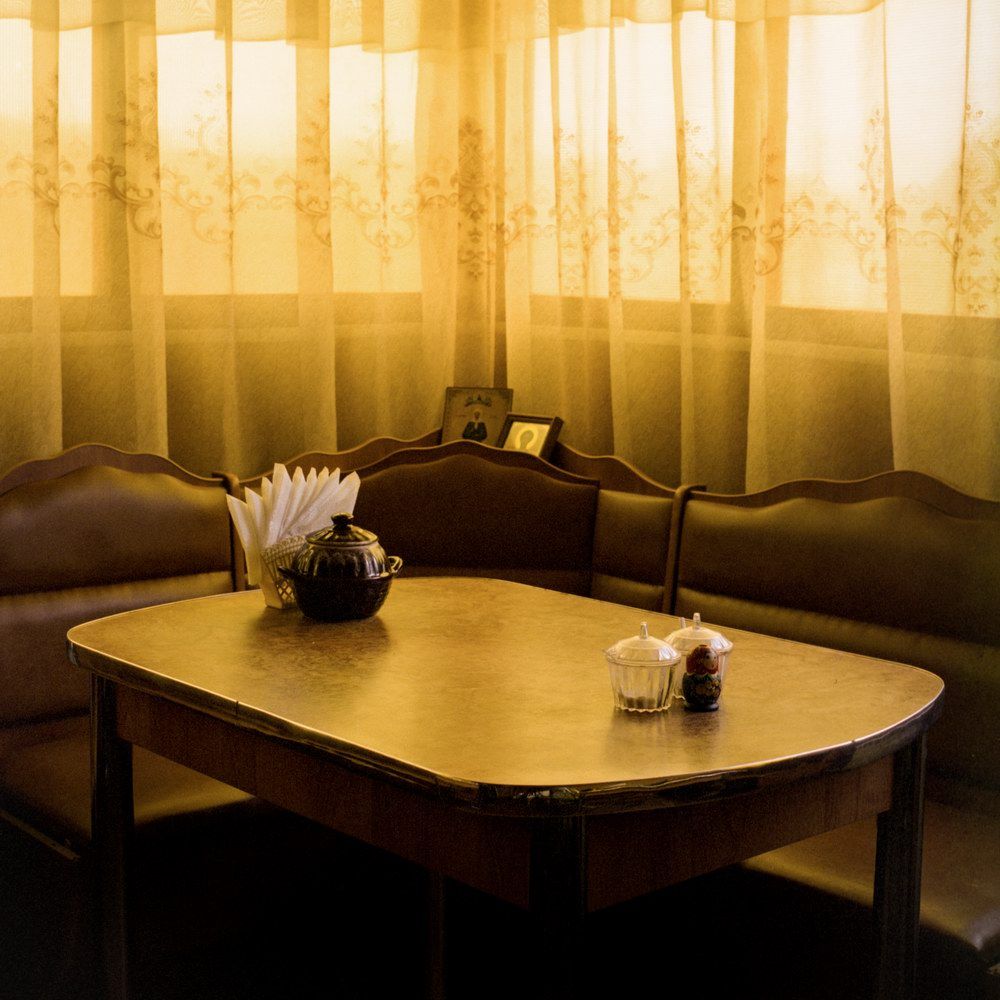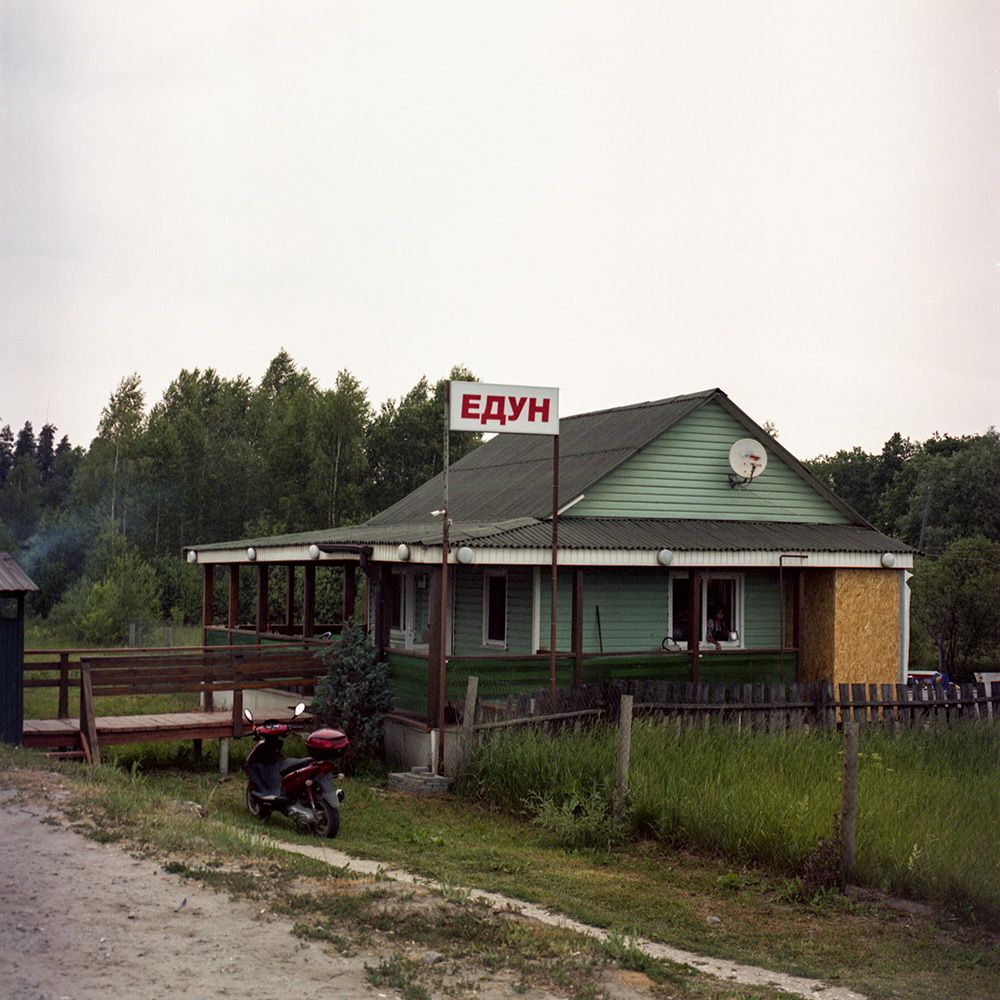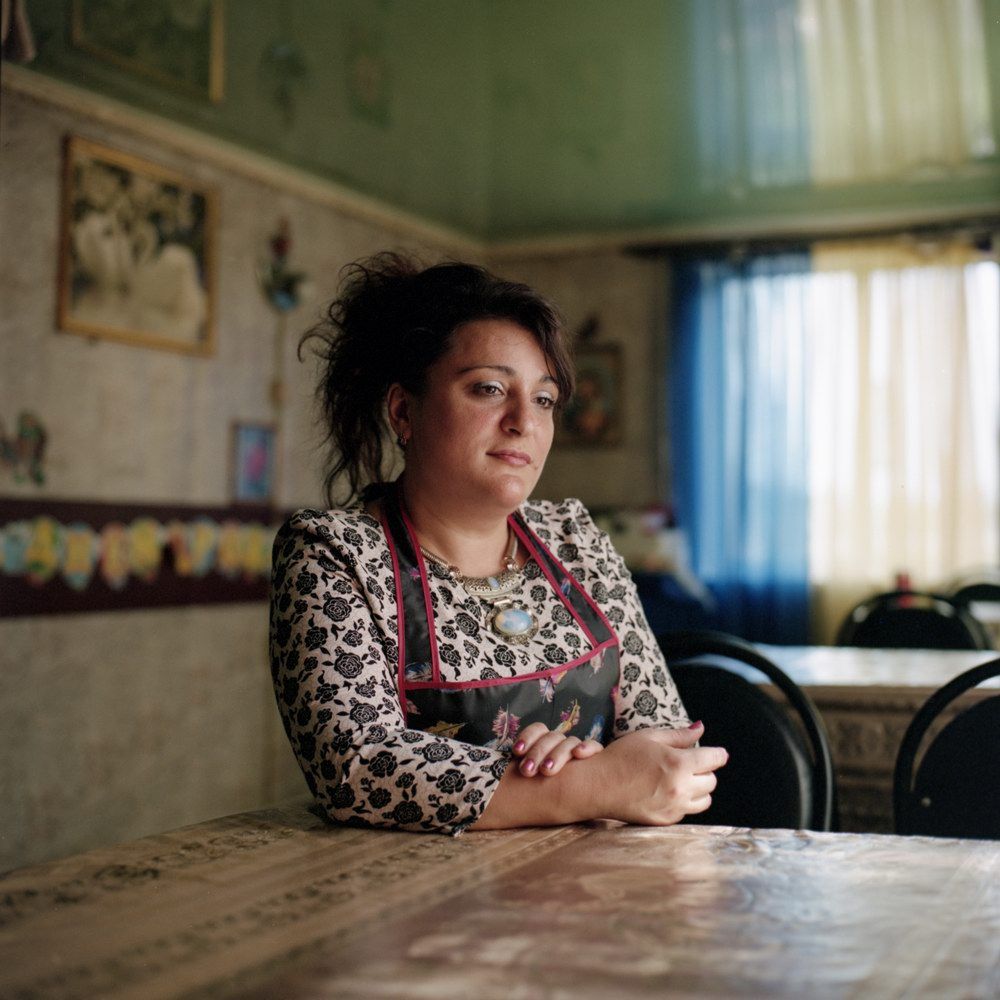blog
Interview with photographer Mikhail Lebedev

Interior of Golden Mile café.
F-Stop Magazine: How did you first become involved in photography and what led to you working in this medium as an artist?
Mikhail Lebedev: After my graduation in 2011 I worked in many positions – as an engineer, taxi driver, construction worker, office clerk, bartender, camera operator. Right now, I understand that it was an important experience in getting to know the world, in improving my communication skills. I have met and have talked to people of different wealth and occupations; I have learnet their view of looking at things. Why are they where they are now? It is a massive kaleidoscope of fates, of their worries and heartaches.
Before 2017 I thought of myself as a photographer, while, in fact, I was not one. I hid behind the word ‘photographer’ in society but did not pay much attention to photography. In spring of 2017, during an internal crisis, I internalized that. At that point it was decided – either I experience the photography for real or I do not pursue it at all. My life changed. I started to spend most of my energy on photography. I graduated form the “Dokdokdok” school of documentary photography, started to shoot photo stories. For now, photojournalism and personal projects occupy the central position in my life. I invest in studying the English language and dismiss commercial shoots to make space for documentary shoots.
F-Stop: The current issue of F-Stop Magazine includes images from your project “Restaurateurs by chance,” can you tell us about this project and how it came about?
ML: To create a life-affirming story about Russia was a long-time wish of mine. I’ve accidentally learnt about this place from a friend. There is a federal highway going through Umet, and a lot of travelers know about this place. A little less than three thousand people live in the village. If you divide the population number by the number of working cafés, the result is much higher than that of Moscow, Paris or New York! But Umyot is a village and not a city! Right near the main street you can see a classic rural scenery: grazing goats and chickens, rickety barns, bathhouses, wooden houses with carved plat bands, orangeries. A rather surreal view.
Most of the documentaries about Eastern Europe show a rather depressing picture. Emptying regions, withering rural life, vanishing small ethnicities, trauma of ethnic wars of the 90s. It is wonderful, that the authors reflect on those themes. And I do understand why, after almost thirty years since the dissolution of the USSR, Russia is still living in the post-Soviet world, exploiting its achievements and infrastructure. But the history of Umet is an inspiring example of the new Russia. In their darkest hour locals didn’t wait for government help, instead they took matters into their own hands. They became honest entrepreneurs, gave jobs for themselves and their neighbors and spent the money earned to give their children education in universities of Saransk, Moscow and Saint-Petersburg. This shows the enormous creative potential of the Russian people.

Exterior of Edok (Gourmet) café.
“My parents opened their first café in 1997. My brother and I were involved with the family business since childhood. Chop the wood, prepare the meat, mown the grass near the café. My father was strict, we weren’t allowed to leave until everything was done. But it tempered us. After school I moved to Tambov to study Commerce and Trade, and I was confident that I would return and put my knowledge to use. Came back here with a wife. She made pies, different sweets, and we filled that niche. More people with children started to visit. We made some renovations, installed the water purifier, we were one of the first cafés to provide wi-fi. People around here work for a quick buck, they don’t think about the future. We try to do things differently — build relationships with our guests, some of them remember me as a child. We don’t set that big of a margin so that people could quality eat for a low price!”
Stas, co-owner of Edinu and Edok (Gourmet) cafés.
F-Stop: Can you discuss your process for making these images or your creative process more generally?
ML: As for me, the most important thing is communication. In all of my projects I communicate a lot with characters, trying to build friendly relationships. In the most cases it’s not easy, people are suspicious of strangers with cameras. The general lifehack is to not be afraid to speak, to look them in the eye, to be honest about what you are doing and why. People feel sincerity, and it disarms them. If you lie, your body language will give you away. Photography is about integrity and connection between people. When I shoot, I discuss the process and the posing with the characters, it’s important for me that people are involved in the process, that the project is an act of collaboration. We share phone numbers, find ourselves on social media, maintain contact. For me as well, it isn’t an easy process, live communication with people takes a lot of energy. That’s probably the reason social media became so popular. I think it’s an illusion.
In this exact project. For two weeks, dusk till dawn, I would go around to the cafés and the village, meeting people, speaking to them, explaining what I do. It was hard at first, but then in a couple of days the rumors about me began to spread, and I was treated as a weirdo, but not as a stranger.
F-Stop: How do you choose what or who to photograph, what are you looking to capture?
ML: In the end I’ve spent around two weeks in the village. There were three important aspects for me: portraits of the owners, interior and exterior of the establishments. I don’t know for how long these establishments can go on, and I wanted to depict this strange world with scrupulous detail. It was an ethnographic research for me: not about small ethnicities, but about a very brittle society.
F-Stop: Do you have a favorite image in this series? If so, which one and why is it the image that speaks to you most?
ML: I really like the portrait of Marine. She is a strong and independent woman, who went through a lot, but despite that, she didn’t lose her femininity, kindness and charm. She was the first among the owners, who agreed to speak with me, to make a portrait. For me it was a very important moment, the moment, when I realised all is going to work out in the end.

Marina, co-owner of Ochag (Hearth) café.
«I have been in charge of this café for over fifteen years, last five of them without my husband, he died in a car accident on the highway. My brother and father also run their cafés in Umyot. I am a very kind and outgoing person by my very nature, and that is why, I think, people keep coming to me. I can see eye to eye with my visitors; one should enjoy one’s food as well as time spent being my guest.»
F-Stop: Are you working on any other projects currently?
ML: Yes, right now I’m making a project about stigma surrounding people, who were convicted of taking or possessing drugs. About the influence of darknet on this. It is a big problem in Russia, the majority of convicts are serving sentence for crimes connected with drugs. But with that in mind I don’t shoot my project in a strict documental form, I’m experimenting with the visual language.
F-Stop: What photographers or other artists inspire you?
ML: Many! Modern technology and ways of communication have uncovered lots of talented people, and that’s very cool! Werner Herzog, the one who truly inspired me some years ago. I am fond of his films, especially the “Fitzcarraldo”. And he is a grand person, he could go from Munich to Paris on foot for his friend’s life’s sake. By the way, she had lived for many years after that. He stole a camera to shoot his first film. A man with an unbound will to create and a passion for adventures.
To see more of Mikhail Lebedev’s work visit his website at http://skaganga.ru/ and on Instagram: @skaganga or check out the Portfolio 2020 issue of F-Stop!
Location: Online Type: Featured Photographer, Interview
Events by Location
Post Categories
Tags
- Abstract
- Alternative process
- Architecture
- Archives
- Artist residency
- Artist Talk
- Biennial
- Black and White
- Book Fair
- Car culture
- Charity
- Childhood
- Children
- Cities
- Collaboration
- Community
- Cyanotype
- Documentary
- Environment
- Event
- Exhibition
- Faith
- Family
- Fashion
- Festival
- Film Review
- Food
- Friendship
- FStop20th
- Gender
- Gun Culture
- Habitat
- home
- journal
- Landscapes
- Lecture
- Love
- Masculinity
- Mental Health
- Migration
- Museums
- Music
- Nature
- Night
- nuclear
- Photomontage
- Plants
- Podcast
- Portraits
- Prairies
- Religion
- River
- Still Life
- Street Photography
- Tourism
- UFO
- Water
- Zine

Leave a Reply